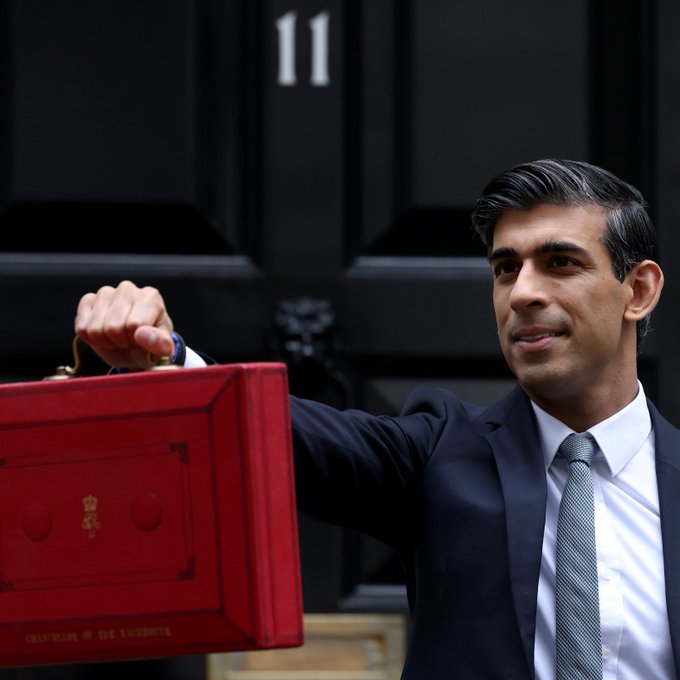Think tank warns households face £3,000 hit after Budget measures
Measures introduced since Boris Johnson came to power, including Wednesday’s Budget, will cost households £3,000 more tax a year, according to the Resolution Foundation.
The think tank found policies announced by Chancellor Rishi Sunak had boosted incomes by 2.8% for the poorest fifth of households.
However, households on middle incomes would take a 2% hit, it added.
Mr Sunak maintained his Budget had “cut taxes for millions of the lowest-paid”.
That claim was challenged by the Foundation’s figures.
It said the changes to the amount families can keep from their earnings if they are on universal credit only partially offset the effect of withdrawing the £20-a-week boost during the pandemic.
On average, recipients would lose £800 a year, it calculated.
The figures produced by the Resolution Foundation include business taxes, which are regularly passed on to consumers.
Of the 4.4 million households on universal credit, about three-quarters (3.2 million households) will be worse off as a result of decisions to take away the £20-a week-uplift, despite the chancellor’s new universal credit measures.
But 1.2 million households would be better off by £900 a year than before the Budget.
Talking on BBC Breakfast, Mr Sunak said pressures on the economy “will be with us for a while”, but that the government’s plan was working and “we can face the future with a bit more confidence”.
He also said that wages were rising and that he had “cut taxes for millions of the lowest-paid people”, adding that it was his job to be concerned about inflation and his new fiscal rules were “how we build up resilience”.
Government figures show that when you take account of investment in public services, the average earner has seen improvements worth £500 a year overall.
He committed to spending increases of £150bn over three years, including nearly £2bn to help schools in England catch up following coronavirus, £6bn to tackle NHS backlogs and £7bn for transport projects.
He also announced that the universal credit “taper” rate would be cut by 8% no later than 1 December, so that instead of losing 63p of benefit for every £1 earned above the work allowance, the amount will be reduced to 55p.
Meanwhile, the National Living Wage will increase next year by 6.6%, to £9.50 an hour.









